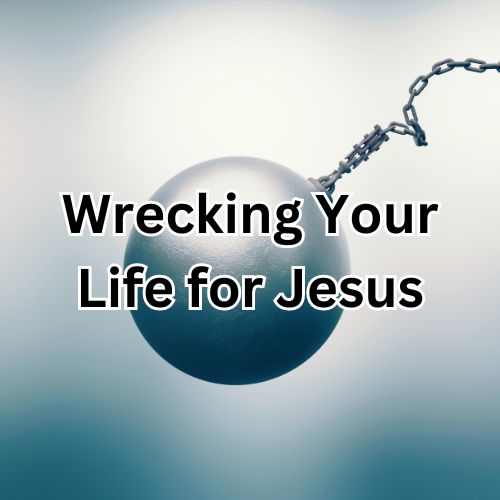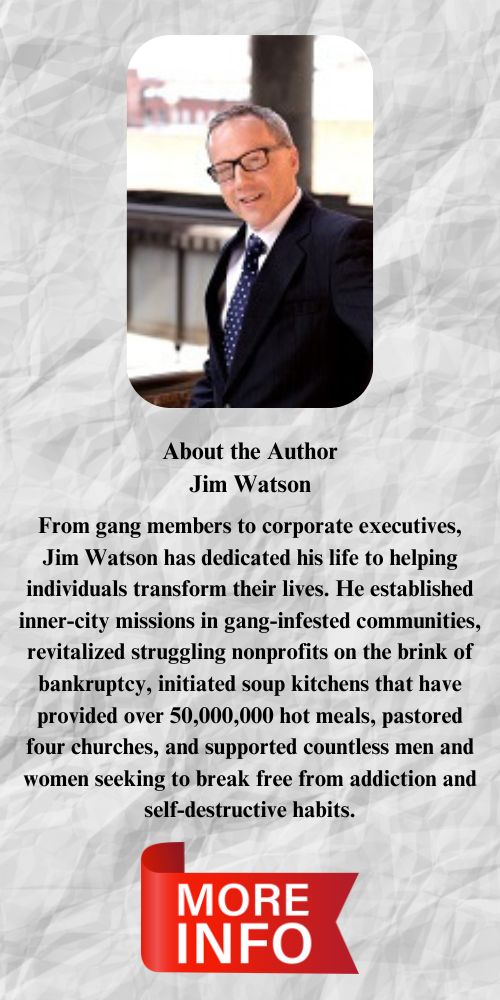
Wrecking Your Life for Jesus

Wrecking Your Life for Jesus
But what things were gain to me, those I counted loss for Christ. Yea doubtless, and I count all things but loss for the excellency of the knowledge of Christ Jesus my Lord: for whom I have suffered the loss of all things, and do count them but dung, that I may win Christ, and be found in him, not having mine own righteousness, which is of the law, but that which is through the faith of Christ, the righteousness which is of God by faith: That I may know him, and the power of his resurrection, and the fellowship of his sufferings, being made conformable unto his death; If by any means I might attain unto the resurrection of the dead.
Philippians 3:7-11 (KJV)
I once heard someone publicly testify how he had destroyed his life for a bottle of Gin. This person was willing to lose everything for a drink of Gin, to preside over the wholesale destruction of his life so that he could get high. As I listened to this person’s testimony, I was astounded at what he was willing to lose to obtain a drink. When he gave his life to Christ, before long, Gin lost its appeal and no longer dominated his life.
When you think about it, the sacrifices people are willing to make to enjoy habits that can destroy their lives are incredible. Many are willing to pay any price necessary to satisfy their needs.
On the other hand, when new Christians share their story, it is mainly filled with tales of the surrender of deadly or damaging habits that brought ruin and embarrassment into their life. In other words, instead of choices that bring harm to someone, they now make choices that bring good into their lives. Often, the other side of someone’s testimony of change encourages us with:
- tales of restored reputations and honor
- decent jobs and new homes
- the mending of broken relationships
- and successful ministry within the church
A great testimony documents the transformation of insanity to sanity, outcast to respectability, and the restoration of normality. Who wouldn’t want to follow a savior who has the power to transition a wrecked life into a productive community member?
As I reflected on this man’s tale of conversion, I wondered: does our understanding of salvation rob us of our passion and willingness to suffer loss for the gospel? What are we willing to give up for the gospel?
The consequences were less than desirable when the Apostle Paul bore witness to the gospel. He
- lost his reputation,
- his position in the community
- his family
- his freedom and, eventually, his life
Paul’s testimony was the story of someone at the top of his game. He was well-educated, a member of the ruling body, and respected by his peers. But because of his commitment to Christ, he lost everything.
Transformation is more than overcoming sin and destructive behavior. Maybe, instead of elevating our position in society, conversion, like Jesus, “numbers us with the transgressors (Mark 15:28, KJV).”
If respectability is the fruit of the gospel, then it is easy to understand why Christianity is declining in power and influence. We are no longer world-changers but instead maintainers of the status quo. To proclaim the gospel effectively, we must demonstrate to the world that Jesus will make our pre-conversion hopes and dreams come true.
Instead, we should emphasize that growing in Christ transforms a person’s worldview. An authentic gospel proclamation impassions people to surrender their hopes and dreams, possessions and money, future, security, and even their health and life.
In the context of doing ministry, a train of thought in the Christian community teaches that provision always precedes vision. In other words, adequate money reserves must be in place before you begin doing any significant ministry of scale.
When I started planting missions many years ago, I was told: “Young man, you need to be prudent, wise, and accountable to God and man.” I understood the concept of accountability, but it soon became evident that prudence and wisdom were coded words for saying no to any risk that might produce failure.
Their caution and fear dictated their actions, causing them to conclude that unless God provided the resources in advance, it was too risky to invest money, reputation, and time in a ministry that might fail. Failure would have brought them shame and disgrace.
When my Dad was alive, he often asked me, “Son, when will you get a real job?” He knew that we often went months without a paycheck or even health insurance in my startups. He continued, “Most ministers when they sense that God is calling them to a new ministry, end up at bigger churches with bigger parsonages and salaries. But you son, with you, it’s always a pit.” I said slowly, “I know, Dad. I guess I’m downwardly mobile.”
I have had more than my fair share of failure in ministry. My failures and successes have repeatedly wrecked portions of my life.
- More than once, I lost most of my material possessions and was plunged deeper into debt.
- My reputation fluctuates depending on how well or poorly our latest startup is doing.
As I now view my life from a Christian perspective, the big question is this: If Christ is to be glorified by my life, am I willing to surrender everything I have?
- my reputation
- my money
- my future, and even my life
But that also leads me to another question: Is following Christ merely the surrender of those things that brought harm to me and those around me? Following Christ is more than surrendering negative traits that can cause me damage.
In submitting to Christ, I relinquished the destructive habits that had created havoc in my life. Because of that, I am now sane, with a compelling testimony of transformation to prove it. I can now sit at the table of respectability. I do not do those things anymore.
Yet, for many, the risk is part of the recipe for a successful life. Without it, no one could ever start a business, go to college, make a YouTube video, move to another part of the country, or get married. Other people are willing to take extreme risks to achieve fame, riches, or power.
Since risk is ingrained in our culture, why are so many Christians half-hearted, unduly cautious, and afraid to adjust to anything that might endanger the status quo of their security and lifestyle? Why have we jettisoned the Biblical injunctions of:
- “losing our lives to find them.”
- “taking up our crosses.”
- “surrendering those things that are gained to know Christ?”
The blessings in our lives have become barriers to experiencing the richness of the blessings that result from a surrendered life. We have settled for counterfeit blessings that ultimately leave us empty and barren.
In our attempts to achieve security and balance, perhaps we missed the real foundation of life, the rock that the calamities and headwinds of life can never shake. That may explain why so many Christians live unsatisfied lives. Perhaps this is true for you:
- The promises in Scripture fail to materialize in your life, causing you to doubt God’s love and provision for you.
- No matter how much you try, you cannot connect with God.
- Your faith is limited to a Sunday ritual that is inadequate for the real stuff of life.
So, instead of soaring with the eagles, you have settled for everyday existence—
- financial stability
- a mortgage
- a family
- and a decent job.
All these things are good. However, they will not bring you the joy that is the fruit of a surrendered life. Please understand that life is more than stability and balance. Often, balance is somewhat overrated.
When you reach the end of your life, what will they say about you?
- Will they memorialize your balanced lifestyle?
- Will they brag about your good sense and how you carefully safeguarded your treasures by never risking your assets?
- “He was a good provider.”
- “She was faithful to her husband.”
- “He was an honest man.”
- “She made good fried chicken for the church socials.”
- “He was a good man.”
These are not terrible statements to make about a person’s life. They are the statements you would make about a decent and moral person. You could also make those statements about someone who has surrendered to Christ.
But shouldn’t there be more? If you are satisfied with that eulogy, then tune me out. I am not writing for those Christians unwilling to rock the status quo of their lives. I am writing for Christians who want to change the world for Jesus and live deep, satisfying lives of significant impact.
I want to take a wrecking ball to your cherished beliefs concerning happiness and fulfillment. I want to demolish the idea that safety and security are life’s ultimate goals, necessary for success and advancement. I want you to experience the richness of a surrendered life and the joy of making a difference in society. Your unconditional surrender will replace the world’s concept of love and self-centeredness with a new kind of love that replaces hatred of your enemy.
You will discover that joy is not contingent on your circumstances. Your surroundings, recessions, hardships, elections, pandemics, or setbacks will not ruin the joy that Christ gives you. And no matter how prosperous you may become, you will no longer view it as the source of your happiness. Your happiness will be rooted in generosity, love, family, friends, and the advancement of God’s kingdom.




